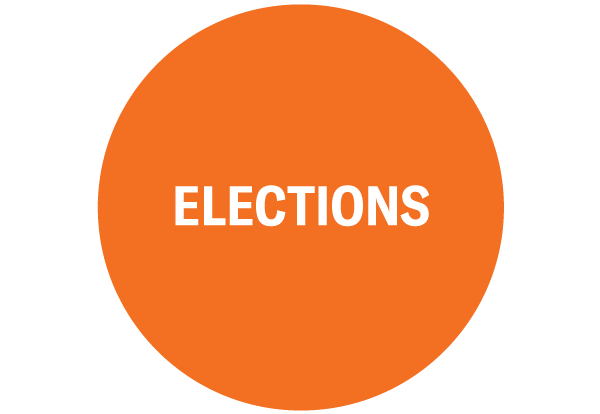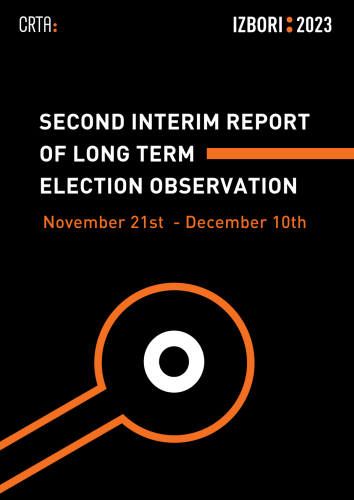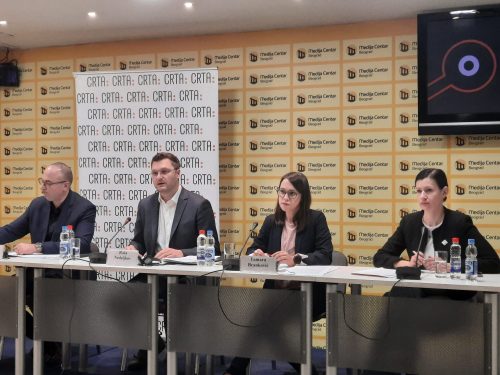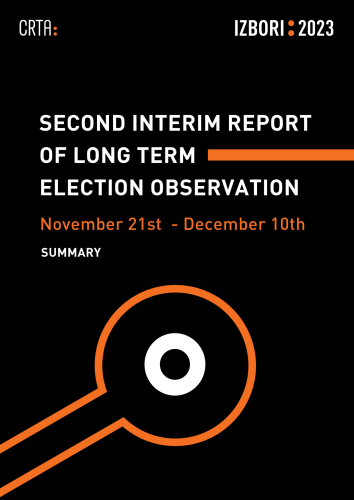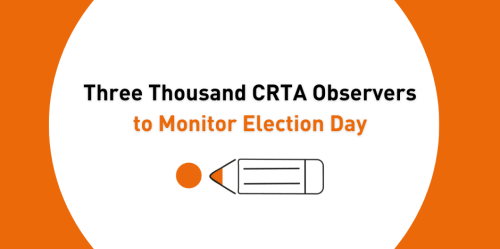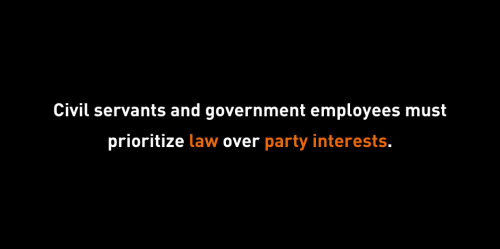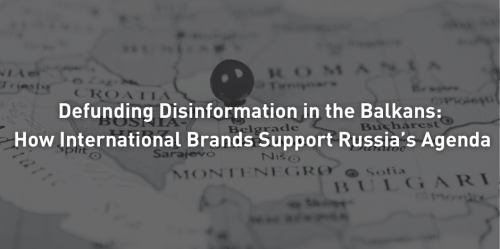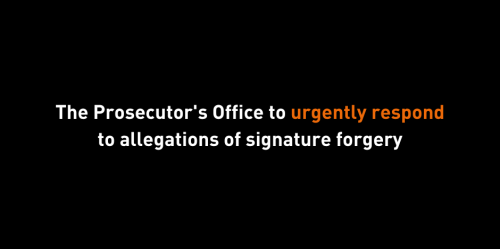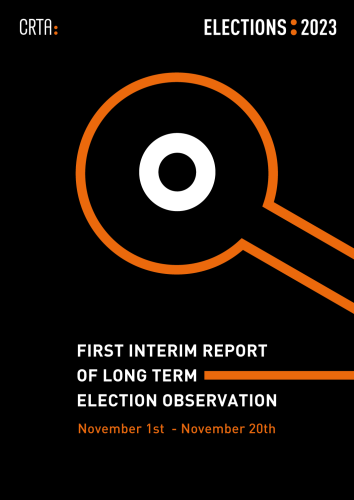A total of 9,8 percent of citizens voted in parliamentary elections by 10:00 (margin of error 0.4 percent). In comparison, voter turnout by 10:00 at the 2022 parliamentary elections was 10 percent. Voter turnout at parliamentary elections on the territory of Belgrade by 10:00 amounts to 9,6 percent (margin of error 0.1 percent), which is higher…
The campaign for the extraordinary parliamentary and Belgrade elections took place in an atmosphere of systematic abuse of institutions, public functions and the most influential media, which placed electoral actors in an unequal position. Mass cases of falsification of signatures for candidacy marked the process of the submission of electoral lists. Worrying allegations of pressure…
The systematic abuse of institutions, public functions, and the most influential media, which put electoral actors in an unequal position, marked the campaign for the extraordinary parliamentary and Belgrade elections – is one of the most important findings of the “Second Interim Report of Long Term Election Observation” that the CRTA Election Observation Mission presented…
The campaign for the extraordinary parliamentary and Belgrade elections took place in an atmosphere of systematic abuse of institutions, public functions and the most influential media, which placed electoral actors in an unequal position. Mass cases of falsification of signatures for candidacy marked the process of the submission of electoral lists. Worrying allegations of pressure…
Three thousand CRTA observers, trained according to the highest international standards, will monitor Election Day, specifically the quality of the voting process in the parliamentary and Belgrade elections on December 17th. CRTA’s Election Day reporting will be based on two random samples, representative of Serbia (500 polling stations) and of Belgrade (500 polling stations). The…
Due to indications pointing to possible abuses of state institutions in cases of election corruption, the CRTA Election Observation Mission has sent out letters to around 1600 addresses of officials in city and municipal administrations throughout Serbia, appealing to their personal and professional responsibility, and reminding them that they are legally obligated to protect the…
CRTA in collaboration with BFMI, explores how advertising revenues from major North American and European brands are funding and legitimising media outlets that disseminate disinformation on the Balkans’s Russia-Ukraine conflict, Kosovo and other divisive issues. The report calls on policymakers, civil society and the private sector to take concrete steps to ensure corporate advertising strategies…
Without the intention of questioning the independence of the prosecution, the CRTA Election Observation Mission calls on the responsible Public Prosecutor’s Offices to urgently and ex officio investigate cases of forgery of signatures of voter support on several electoral lists in order to establish the facts, to protect the integrity of the electoral process and…
The CRTA Election Observation Mission assesses that the course of the election campaign thus far has been marked by pronounced advantages which the ruling parties have gained through the abuse of institutions and manipulations of the electoral calendar. In less than two years, the second extraordinary parliamentary and Belgrade elections were announced. Extraordinary provincial elections were…
Our topics

Democratic culture
Because politics is not just for politicians. It is our human and citizen right to participate in the processes of making decisions which influence our lives. A dialogue has no alternative.

Free and fair elections
Because elections are the pillars of democracy. It is every citizen’s right to decide on whom to give his/her vote in free and fair conditions. Our vote is valuable and it can make a difference.

Open institutions
Because institutions serve the citizens. We need strong institutions with integrity which protect the public interest.

Free media
Because media should ask questions and critically analyse the reality. We need the media which protect the public interest and tackle the needs of the citizens.






